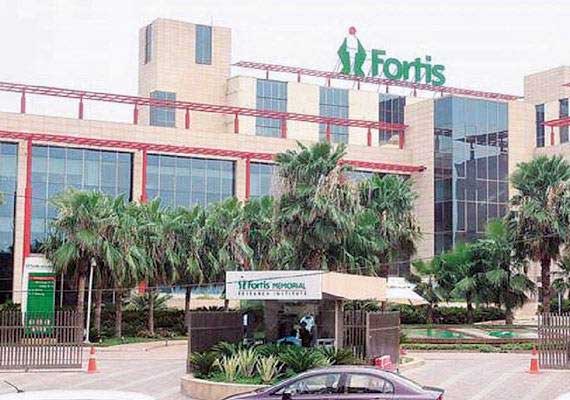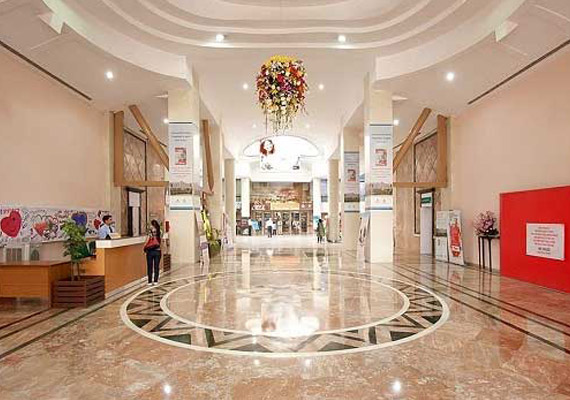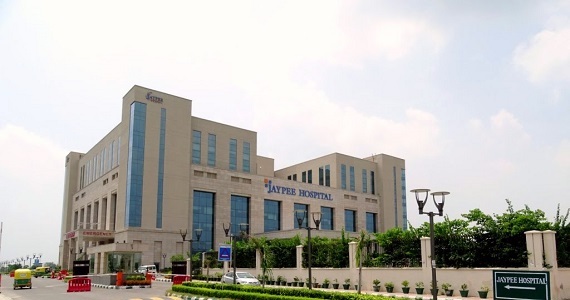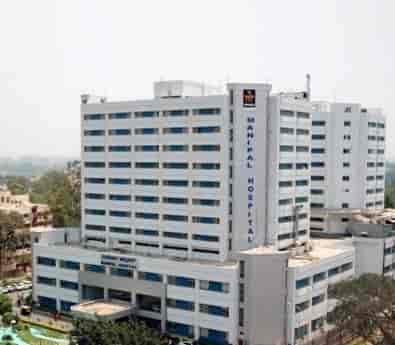Dialysis Treatment in India
treatment
starting from
Introduction:
Dialysis is a crucial medical procedure used to treat patients with kidney failure or end-stage renal disease (ESRD). The kidneys play a vital role in filtering waste and excess fluids from the blood, maintaining a proper balance of electrolytes, and producing hormones that regulate blood pressure. When the kidneys fail to perform these functions adequately, dialysis becomes necessary to remove toxins and waste products from the body. This article explores the symptoms, causes, treatment options, cost in India, and the significance of dialysis in improving patients' quality of life.
Symptoms of Kidney Failure:
The symptoms of kidney failure can be subtle in the early stages, but they may become more pronounced as the condition worsens. Some common symptoms include:
- Fatigue and weakness
- Swelling in the legs, ankles, or feet (edema)
- Shortness of breath
- Changes in urine output (decreased or increased)
- Persistent itching
- Nausea and vomiting
- Loss of appetite and unintentional weight loss
- Trouble sleeping
- High blood pressure
- Changes in mental alertness and concentration
Causes
Kidney failure can result from various underlying conditions that damage the kidneys' filtering ability over time. Some common causes include:
- Diabetes: Uncontrolled diabetes can lead to diabetic nephropathy, damaging the kidneys' blood vessels.
- Hypertension (High Blood Pressure): Prolonged high blood pressure can strain the kidneys and impair their function.
- Glomerulonephritis: Inflammation of the kidney's filtering units (glomeruli) can lead to kidney damage.
- Polycystic Kidney Disease (PKD): A genetic disorder characterized by the growth of numerous cysts in the kidneys.
- Kidney Stones: Repeated episodes of kidney stones can cause kidney damage and blockages.
- Autoimmune Disorders: Conditions like lupus and other autoimmune diseases can affect the kidneys.
- Urinary Tract Obstruction: Blockages in the urinary tract can lead to kidney damage if left untreated.
- Infections: Severe or recurrent infections can harm the kidneys.
Treatment:
Dialysis Dialysis is an essential treatment for patients with kidney failure. It involves the process of artificially filtering the blood to remove waste, excess fluids, and toxins that the kidneys are unable to eliminate. Dialysis helps restore the balance of electrolytes and maintains a safe level of fluids in the body. There are two main types of dialysis:
- Hemodialysis: In hemodialysis, the patient's blood is pumped out of the body and passed through a dialysis machine, also known as an artificial kidney. Inside the machine, the blood is filtered through a specialized membrane, and the cleaned blood is then returned to the body.
- Peritoneal Dialysis: Peritoneal dialysis uses the peritoneum, a natural membrane lining the abdominal cavity, as a filter. A dialysis solution is introduced into the abdominal cavity through a catheter, and waste products from the blood diffuse into the solution. After a few hours, the used solution is drained, and a fresh dialysis solution is introduced.
Benefits of Dialysis:
- Enhanced Quality of Life:
- For patients with end-stage renal disease (ESRD), dialysis is a life-sustaining treatment that significantly improves their quality of life. By removing waste products and toxins from the body, dialysis helps reduce symptoms such as fatigue, nausea, and shortness of breath, allowing patients to lead a more active and comfortable life.
- Prolongs Life:
- Dialysis plays a crucial role in prolonging the lives of patients with kidney failure. Without dialysis or a kidney transplant, ESRD can be life-threatening. Regular dialysis treatments help manage the condition and prevent complications, increasing the chances of survival.
- Fluid and Electrolyte Balance:
- Dialysis helps maintain the right balance of fluids and electrolytes in the body, which is vital for overall health. By preventing fluid overload and electrolyte imbalances, dialysis reduces the risk of dangerous complications like heart failure and cardiac arrhythmias.
- Controls Blood Pressure:
- High blood pressure is a common complication of kidney failure. Dialysis helps regulate blood pressure, reducing the risk of cardiovascular problems and other related complications.
- Nutritional Support:
- Dialysis allows for better control of nutrition and mineral balance in the body. As kidney failure can lead to malnutrition and bone diseases, dialysis ensures that essential nutrients are properly managed.
- Relieves Symptoms: Dialysis is effective in alleviating symptoms associated with kidney failure, such as itching, bone pain, and peripheral edema (swelling in the legs and ankles).
- Flexible Treatment Options:
- Dialysis offers different treatment modalities, including in-center hemodialysis, home hemodialysis, and peritoneal dialysis. These options provide patients with the flexibility to choose the best-suited treatment based on their lifestyle and medical needs.
- Improves Long-Term Health Outcomes:
- By maintaining kidney function through dialysis, patients have a better chance of being eligible candidates for a kidney transplant, leading to improved long-term health outcomes and overall survival.
Cost of Dialysis in India:
The cost of dialysis in India varies based on the type of dialysis, the healthcare facility, and the region. On average, a session of hemodialysis in India can cost between ?2,000 to ?3,500, while peritoneal dialysis may range from ?1,500 to ?2,500 per exchange. The frequency of dialysis sessions per week depends on the individual's medical condition and doctor's recommendation.
Conclusion:
Dialysis plays a crucial role in extending and improving the lives of patients with kidney failure. As a life-saving treatment, dialysis helps to remove waste and toxins from the body, regulating fluid balance and electrolyte levels. Early recognition of kidney failure symptoms and prompt initiation of dialysis can significantly improve a patient's quality of life and overall well-being. The accessibility of dialysis facilities and the affordable cost in India make it possible for more patients to receive this essential treatment. Nonetheless, efforts to prevent kidney disease through lifestyle modifications, regular check-ups, and proper management of underlying conditions remain essential in reducing the burden of kidney failure in the population.
How It Works
Need help in organizing medical travel to India?














